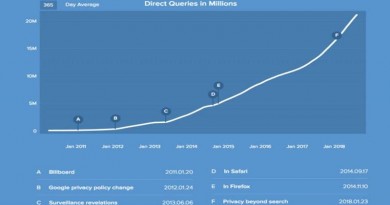Global coronavirus cases cross 350,000, death toll passes 15,000 as pandemic takes hold – Holly Ellyatt
The economic fallout from the coronavirus pandemic will be felt far beyond the immediate impact of the virus, the OECD’s secretary general told CNBC Monday.
“What you have is an economic effect now that, very clearly, is going to be prolonged beyond the period of the pandemic,” Angel Gurria told CNBC’s “Squawk Box Europe.”
“We’ll hopefully get rid of the pandemic in the next two or three months and then the question is how many unemployed (will there be), how many small and medium-sized enterprises will be in a very, very severe situation if not disappeared by that time,” he added.
“Life, and economic activity, is not going to be normalized any time soon,” he said. “We’re going to have the impact of this crisis for a long time to come.”
Gurria said the effort to rebuild the global economy after the coronavirus outbreak is contained would be one of “enormous dimensions.” So far, over 349,000 people worldwide have contracted the virus and over 15,000 people have died, according to the latest data collated by Johns Hopkins University.

A trader with gloves and mask arranges some products in a plastic bag inside his grocery store during the covid-19 crisis on March 21, 2020 in Pontecagnano Faiano, Italy.Ivan Romano
The OECD, which has 36 member countries and aims to stimulate economic progress and world trade, earlier this month predicted an “intensive” coronavirus outbreak could weaken global growth to 1.5% in 2020.
That forecast might be very optimistic, given the nationwide lockdowns seen around the world, with schools and almost all businesses closed, with no end in sight given the rise in coronavirus cases in the West.
US unemployment could hit 30%
Many European governments have announced aid packages to support businesses, and to discourage them from making workers redundant during the crisis. In the U.K., for example, the government took the unprecedented step of guaranteeing to pay up to 80% of workers’ wages if they are kept on by their employers.
In the U.S., St Louis Federal Reserve President James Bullard warned on Sunday that the U.S. economy could take a $2.5 trillion hit, and that unemployment could hit 30% in the States during the outbreak.
His comments came as Washington remained divided over economic aid to combat the virus, however, with a massive funding package not getting enough votes in a key Senate procedural vote Sunday evening; Democrats warned the measure did not do enough to help workers and too much to bail out companies.
National Economic Council Director Larry Kudlow said Saturday an economic stimulus package to fight the virus will total more than $2 trillion, noting it will be equal to roughly 10% of U.S. economic output. Last week, President Donald Trump signed a $100 billion bill that expanded paid leave in the U.S.
Furthermore, Treasury Secretary Steven Mnuchin said Sunday that financing programs to stimulate the economy could be worth $4 trillion, noting these efforts will include coordination with the Federal Reserve to provide businesses with necessary liquidity.
The U.S. has the third-largest coronavirus outbreak after China and Italy, at 35,224 confirmed cases on Monday, according to Johns Hopkins University, and 471 deaths.
The OECD’s Gurria said the stimulus package, depending on how it’s allocated, should give “relief to a number of sectors” but it remained to be seen if the measures would support the unemployed or further liquidity for financial markets.
By Holly Ellyatt , CNBC
– CNBC’s Fred Imbert and Thomas Franck contributed reporting to this story.




